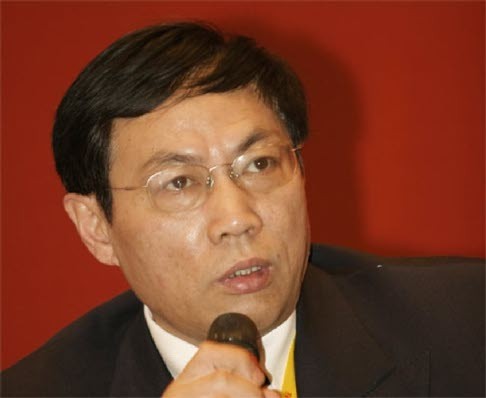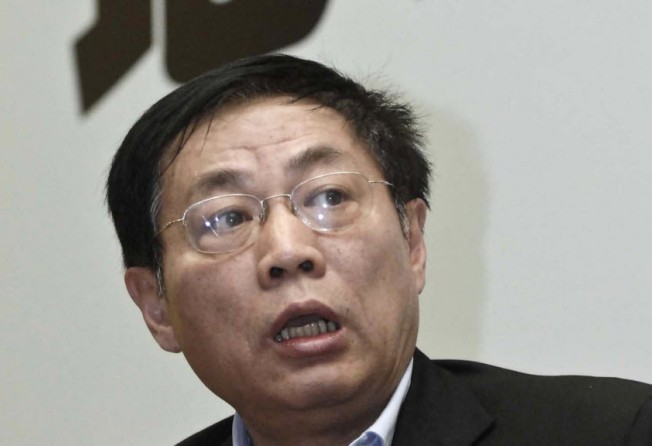
China’s Donald Trump: loud and proud Ren Zhiqiang offers a litmus test for opinion inside the Communist Party

If Donald Trump has a counterpart in China, that person has to be Ren Zhiqiang, a property tycoon who recently retired from a leading real estate company owned by the Beijing municipal government.
Like Trump, Ren is loud, outspoken, and controversial. He appears to enjoy provoking debate by offering sarcastic and contrarian comments on mainland politics, economic policies and social issues. As a veteran Communist Party member, he is supposed to be part of the elite group who have benefited greatly from the party’s policies but he has made his mark as a maverick, offering snide comments, particularly on handling of the mainland’s chaotic property market. For instance, whenever the central government tried to rein in runaway property prices in the last few years, he would counter that the policies were doomed to failure and the poor should feel ashamed if they could not afford a home. His views have earned him the nickname “Big Cannon Ren” and about 38 million followers on his microblogs.
What is more remarkable is that although his comments often run completely against party policy and invite strong criticism from the official media he has been largely left alone. In fact, has been singled out as a model party member and showered with other commendations, giving the impression that many policy makers are among his followers.
But that is likely to change, judging by the storm of criticism against Ren orchestrated by an increasingly combative group of leftists over his direct questioning of President Xi Jinping’s comments on the role and the purpose of the official media.
On February 19, Xi spent the morning making a high-profile visit to three of the mainland’s most important media groups: Xinhua News Agency, People’s Daily, and China Central Television. In the afternoon he chaired a meeting of top editors of all major media outlets.
His message was clear: all media outlets, from top party mouthpieces to commercial tabloids and social media, must align themselves with the leadership of the party, toe the party line, and embrace the fact that their “surname is the party”. It was widely seen as a signal of the leadership’s intent to exercise tighter control over the media amid slowing economic growth and unprecedented challenges to the party’s legitimacy.
True to his colours as “the Big Cannon”, Ren took issue on the very night of Xi’s visit by posting comments on his Weibo suggesting that if the media had surnames and didn’t represent the people’s interests, the people would be cast aside and forgotten. He also said the official media were funded by taxpayers, not party membership fees, and so should serve the people, not the party.
Ren is the first influential businessman from inside the party to openly challenge Xi on the role and purpose of the official media. And it wasn’t long before he felt the backlash.
A website run by the party committee of the Beijing municipal government led the charge against him, accusing Ren of harbouring “anti-Communist Party” thoughts. Websites run by other local party organisations followed, labelling him as the champion of Western interests aimed at setting the party against the people. Online commenters urged leaders to expel Ren.
Cyber regulators announced yesterday that Ren’s microblogs on the Sina and Tencent platforms were closed, accusing him of spreading illicit information that had adverse implications. While the decision was very much expected, it will be interesting to see if Ren will receive further punishment such as losing his party membership. That’s because this case could prove a litmus test of how the leadership tolerates different opinions from party members and the public as a whole.
A cool-headed look at Ren’s comments shows that his remarks are hardly “illicit” or even “anti-party”, even though they are not in line with party policy. By definition, Xinhua and CCTV are part of the government apparatus which is funded by taxpayers. People’s Daily is under the direct control of the party’s central committee and is therefore the party’s mouthpiece.
The debate over whether the media should answer to the party or the people is also nothing new – it was hotly debated in the 1980s. From the leadership’s point of view, the party’s interests are completely in line with those of the people so there is nothing wrong in asking the media to pledge loyalty to the party. But many media professionals and intellectuals on the mainland see an inherent danger in this logic as there were times – such as during the Cultural Revolution – when the party did not represent the interests of the people at all.
For those wondering about Ren’s fate, they may hope the leadership learns from Zhu Rongji, one of the most respected reformist leaders.
In October 1998, Zhu, then the premier, visited CCTV and talked to the journalists from a favourite prime-time investigative show. When he was asked to write a few words for the journalists, he wrote “media watchdog and mouthpiece of the people”. The country’s then top propaganda chief intervened and reminded Zhu “it should be the mouthpiece of the party”. Zhu replied: “I know. I’m not wrong.”